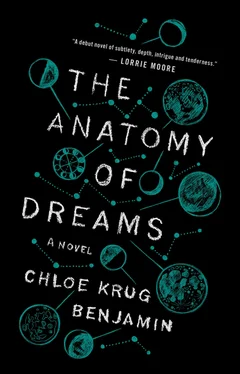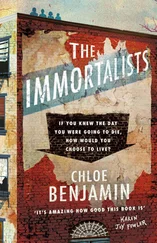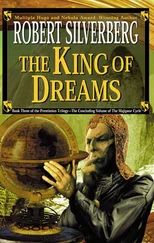For months, I was sure I would hear from him. But he didn’t call or write, and my own calls to his mother’s house went unanswered—there was only her drawl on the machine, the cool beep, and then my own voice, cryptic, tentative (“Gabe, it’s me . . .”). It would have been easier to move on if I thought our relationship had been a fling, but I knew that wasn’t true. Our conversation in bed, that final night, was a hook in me; I returned to it again and again, searching for meaning I hadn’t found before, trying to tease it out of the skin.
Hannah and I returned to our old group of friends, but the girls on our hall seemed colorless and uninteresting now, their conversations petty. At mealtimes, I dragged my fork in circles until Hannah asked me if I was hypnotized. When I went home for winter break, I couldn’t sleep. I was groggy during the day, prone to mistakes that startled my family: I put scissors in the refrigerator, ketchup in the freezer, dishwashing soap in the laundry machine.
“It’s a breakup, Sylve,” said Rodney, “not the zombie apocalypse.”
But I couldn’t snap out of it. When I got back to school in January, I left my duffel on the floor and climbed onto my bunk, spreading my arms and legs like a starfish. With Gabe gone, there was too much space. It was raining outside, sloppy and plashing; when Hannah walked in, her hair was slicked to her cheeks. She stood in the doorway—huffing from the stairs, a puddle pooling at her feet—and looked at me with her eyebrows raised. Then she dropped her bags.
“Okay,” she said. “No.”
“No what?”
“No,” she repeated, climbing up the ladder to my bunk. “You are not doing this all semester.”
“You’re getting everything wet,” I said in protest.
“Try to stop me,” said Hannah, and then she was tickling me as I yelped for leniency, both of us laughing so hard the bed shook. “Come on, Sylvie. You don’t want to spend your last semester of high school as some miserable blob of longing.”
Over dinner, we plotted a self-betterment program. We took frigid runs before physics, dragging ourselves out of bed at six thirty, racing so fast downhill we were practically falling. We spent even more time in the workshop, using charcoal to draw our hands open, shut, twined together. Over spring break, we drove to her family’s farm in the Sacramento Valley. We sped down Route 101 with the radio turned all the way up, howling at the redwoods, sugar-high on Blizzards from the Petaluma Dairy Queen. Hannah’s sisters had all left home, so we had our pick of bedrooms in the farmhouse. During the day, we helped her mother, Ingrid, in the nut orchard. I preferred the almond trees: their hulls fuzzy and green as unripe peaches, their delicate ecology. They needed five years of pollination to bear fruit. It was our job to find and shuck the seeds, tapping each shell with a hammer until it split in two along the seams. At night, we spread out in the unused barn with our charcoals and worked in easy, simpatico silence.
There, I felt peaceful—not ecstatic or despairing, as I had with Gabe, but fine. Even content. It’s the physical sensations I remember most: the sun close as a hand pressed to my neck, the relief of a crack in the almond’s stone shell. Each nut was a small adversary, a minute-long accomplishment. By the time we left Sacramento, I had almost convinced myself it was possible to let go of him. I could live on my own, I thought, or on a farm with Hannah; maybe I didn’t need the highs and lows that came with love. Maybe this quietude—these small, daily pleasures—could be enough.
• • •
That April, I got into UC-Berkeley, and I began to map the pillars and floorboards of my new life. I missed Gabe most in moments of camaraderie among us seniors—reading by the lake in early June, or crowding around someone’s computer, looking at photographs from a college visit. But I tried not to dwell on his absence, and with each month, it became a little bit easier to leave him behind.
By the time graduation came around, I had almost done it. After the ceremony, everyone congregated on the lawn in front of Keller’s house, eating cheese cubes and drinking out of plastic cups—champagne for the adults and sparkling cider for us. I stood with my parents and Rodney at a center table, talking with Mr. Keller, when I felt something soft brush against my leg.
I jiggled my foot, thinking it was the tablecloth. But then I felt it on my other leg, and when I reached down, I found a moving, velvety body, its muscles rippling against my calf.
It was a small cat, tawny in color, with rust-colored flecks on its forehead and paws. But what I noticed most was the pressure of its head on my leg, a firmness, as though it wanted to push me into the table.
I dropped my hand and straightened as if I’d touched something soiled. I must have knocked the table with my elbow on the way up, because Rodney’s glass began to quiver. Mr. Keller reached for it, but he wasn’t fast enough, and the cup toppled lightly into the grass, where the sparkling cider barely missed the cat’s tail.
“Is that your cat?” I asked.
“Indeed she is,” said Keller. “Lucy.”
He had been talking to my mother, a cup of champagne in one hand. I could tell she wanted to continue the conversation and wished I hadn’t interrupted it, but I couldn’t pretend I was fine.
“I had a dream about her,” I said.
Keller’s face hardly moved.
“You wouldn’t be the first. Lucy’s always lurking around the dining hall and the library. Come finals, everyone’s dreaming about cats.”
There was a pause while my family looked at me. Then my father started to laugh, and Keller smiled briefly before turning back to my mother. But I still felt as though every nerve in my body had been lit with a match, and I couldn’t concentrate on the reception. The whole thing gave the end of my time at Mills an uneasy feeling. Soon, I began to avoid thinking about the school at all. It became easier and easier until the summer before my last year of college, when Gabe returned.
4. MADISON, WISCONSIN, 2004
One Wednesday in late September, when the heat was just beginning to lift, I went to our neighbors’ house for the first time. I was standing at our kitchen sink, washing water glasses with the window open, when I heard someone call to me.
“You want lemonade?”
I looked up. It was the woman next door, hanging out of a second-story window that faced our house and the train tracks. She leaned from the waist, so that her upper body tilted out of the frame, her hair streaking the sky.
“Sorry?”
“I said would you like lemonade. I saw you looking at my porch. Sometimes I sit there with a drink but I’m in today, it’s too goddamn hot. So I thought I’d invite you.”
I had planned to go to the office to enter the data from last night’s session. Our participant had wriggled out of his leg straps and walked down the hall to the building’s emergency exit. When Keller brought him back to the lab, he had no recollection that he’d been there before; eventually, he became so agitated that Gabe had to sedate him. We woke him several hours later.
We hadn’t lost control like this since patient 222, a woman named Anne March. She was the first person I worked with, and she left our study abruptly, though I tried not to conflate these two facts. I still wondered if we’d helped her at all; sometimes I thought we’d actually made things worse. Every so often, I forgot about her, but then, like a fussy, chronic injury—a pulled muscle or a bad ankle—she made herself known again. But I didn’t want to spend the day thinking about Anne, and I was too curious about the woman next door to turn down an opportunity to meet her.
Читать дальше












